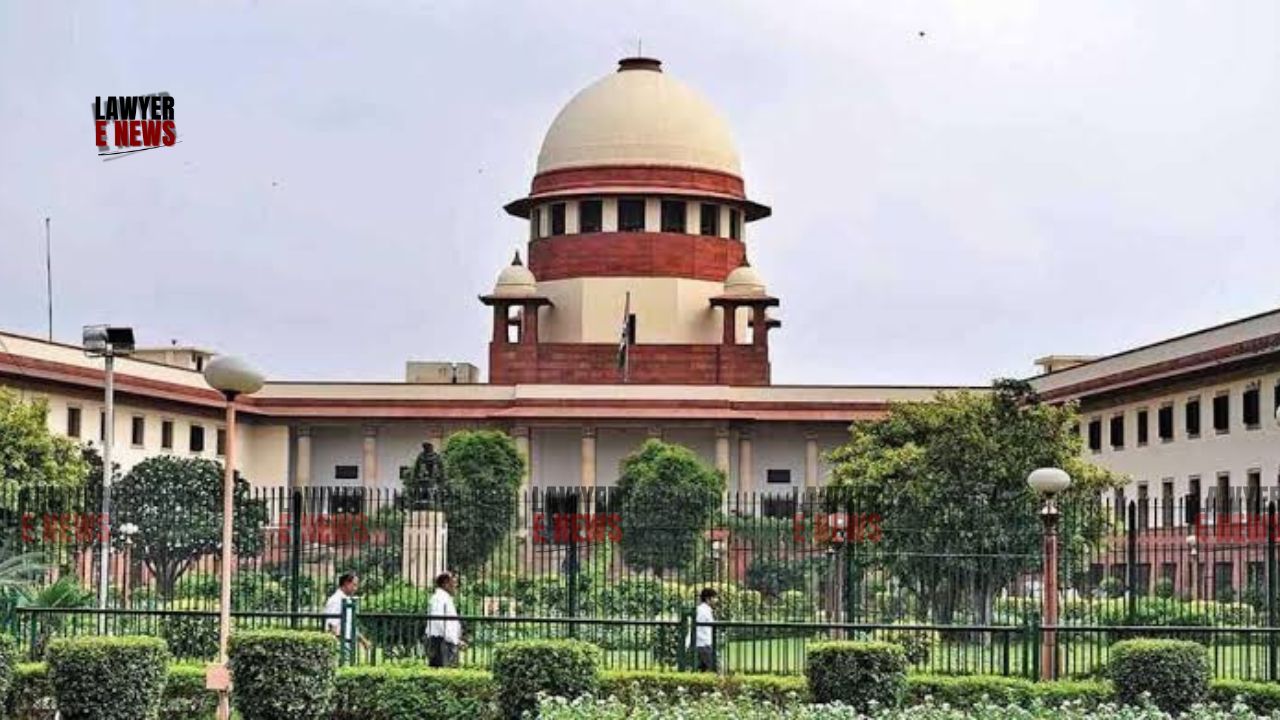-
by Admin
15 February 2026 2:36 AM



Supreme Court criticizes state for "arbitrary and non-transparent" actions, dismisses appeals in high-profile Lucknow land dispute. The Supreme Court has dismissed appeals filed by City Montessori School (CMS) and others regarding the conversion of a Nazul plot in Lucknow from leasehold to freehold. The judgment, delivered by a bench comprising Justices Abhay S. Oka and Augustine George Masih, affirmed the Allahabad High Court's decision that the conversion was conducted in a manner that was arbitrary and violative of constitutional principles. The Court emphasized that state largesse must be distributed through a transparent and non-discriminatory process.
The dispute centers around a plot located in Maha Nagar, Lucknow, originally leased by the Uttar Pradesh government in 1961. The leasehold interest was later transferred to M.M. Batra, who then engaged in a legal battle over the property for several decades. In 1995, the plot was auctioned, with CMS emerging as the highest bidder. However, due to procedural discrepancies, the state government canceled CMS's bid and subsequently converted the plot to freehold in favor of Batra at a fraction of the auction price. This led to CMS challenging the legality of the conversion and the subsequent sale deed in the Allahabad High Court, which ruled in their favor.
The Supreme Court reiterated the legal position that state largesse, such as land allotments, must be granted based on a sound, transparent, and well-defined policy. Citing the precedent set in Akhil Bhartiya Upbhokta Congress v. State of Madhya Pradesh, the Court observed, "The distribution of largesse by the State and its instrumentalities should always be done in a fair and equitable manner. The element of favoritism or nepotism shall not influence the exercise of discretion".
The Court highlighted the procedural flaws in the conversion of the leasehold property to freehold. The amount paid for conversion by Batra was significantly less than 10% of CMS's bid, offered 16 years prior. "This cannot be a fair and transparent process of transferring the State's ownership rights," the bench stated, underscoring the requirement for transparency and fairness in such transactions.
The judgment criticized the state government's actions during the pending litigation, particularly the suppression of relevant facts from the Allahabad High Court during the appeal process. The Court noted that the conversion order was a "covert method of defeating the High Court's interim order" and emphasized that the state and its agencies must respect judicial processes.
The Supreme Court concluded that while CMS's bid was wrongfully canceled, restoring the bid after more than 20 years would be unjust given the significant rise in property values. The Court therefore upheld the Allahabad High Court's ruling, setting aside the conversion deed in favor of Batra but leaving open the question of whether the plot should be auctioned afresh under current laws.
Justice Oka remarked, "Selling the plot to its alleged lessee at a nominal price will not be a fair and transparent method at all. It will be arbitrary and violative of Article 14 of the Constitution of India".
The Supreme Court's decision reinforces the necessity for transparency and adherence to legal principles in state transactions, particularly in cases involving public property. The judgment also sends a clear message about the importance of judicial oversight in preventing arbitrary state actions. Both CMS and the alleged lessee have the option to seek refunds for the amounts paid, but the ultimate fate of the plot will depend on future legal and governmental actions.
Date of Decision: August 2, 2024.
City Montessori School vs. State of U.P. & Ors.
